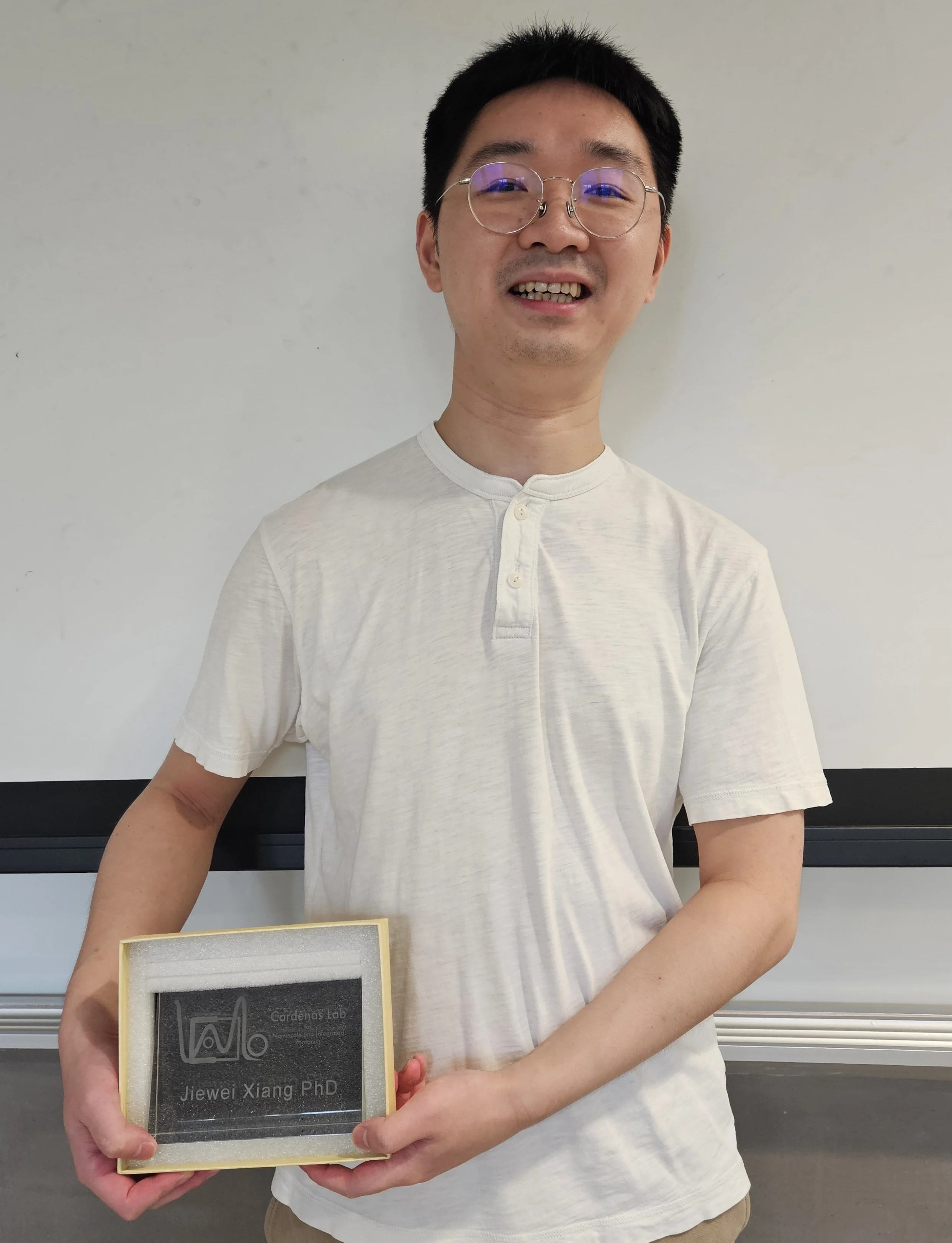Jiewei Xiang phd
2025
First, I’m truly grateful to have a chance to share my PhD story, along with some thoughts and memories from this meaningful chapter of my life. Time has flown by—it feels like I just passed my prelim and took Fourier optics not long ago. Looking back, there are countless moments tied to research, friendships, and mentorship that I will always cherish.
Why Pursue a PhD—and Why Optics?
My undergraduate and master’s background is in physics. I’ve always been drawn to uncovering the fundamentals of how things work, so pursuing a PhD felt like a natural path. However, during my master’s studies, I began to realize that while pure theoretical physics is intellectually rewarding, it can often feel distant from real-world impact. I wanted to work on something more tangible and applicable in the near future. Optics stood out to me—light is the fastest thing in the universe and can be described both classically and quantum mechanically. It became the perfect field to bridge my physics background with practical applications.
What I’ve Learned from the PhD
One of the most important lessons I’ve learned is that every professor has a different mentoring style. Regardless of that style, becoming an independent researcher as early as possible is crucial for success. In my case, my first project was quite different from my group’s main focus. Support from senior students and advisors was limited, which made the beginning very challenging. But it also pushed me to become self-reliant early on. In hindsight, I’m grateful for that period—it developed my ability to dive into new areas, solve problems independently, and built the confidence I needed to take on new challenges.
To me, the essence of independent research lies in embracing the mindset that I am responsible for solving problems and generating ideas—not just my advisor or lab mates. Of course, discussing and learning from others is essential, but developing your own research style and problem-solving methodology is key. Research demands a great deal of self-learning. Sometimes, there’s a path paved by previous students; other times, you have to be the one to break the ice.
Life in the Group
The environment in our group is friendly and open. Prof. Jaime is generally very supportive, especially if you take your research seriously. I’ve grown to appreciate his words: “You don’t work under me, but with me.” It might not feel perfect at the beginning for every student, but by the end of the PhD, it becomes second nature.
The group members have always been ready to help each other. I’ve learned a lot from my interactions with lab mates. I especially want to thank Meiting for her patience and for always being open to sharing thoughts on both research and life. Personally, I’m not someone who is naturally expressive—I tend to focus on efficiency and independence. But I’m deeply grateful to have met so many passionate and enthusiastic people during this journey. You’ve changed me in ways I didn’t expect and helped me realize how meaningful it is to have people with whom you can share both the struggles and joys. We all like to stay in our comfort zones, but you’ve shown me that stepping beyond it can lead to something truly worthwhile.

